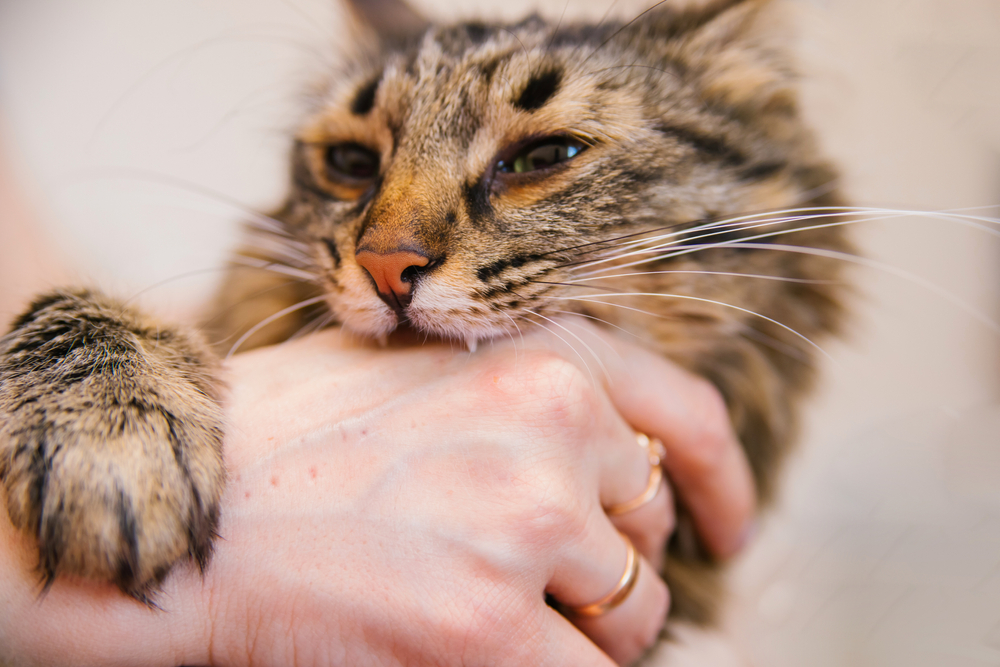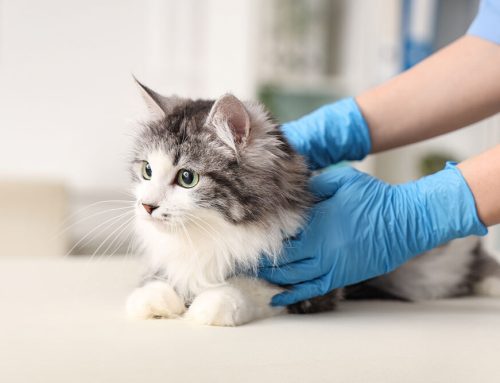Is your furry friend behaving a bit out of the ordinary? Sometimes these unusual signs are more than just quirky behaviors. However, by being able to recognize your pet’s subtle health signs, you can make a significant impact on their well-being. Our Homestead Animal Hospital team knows that early disease detection is key to a happy, healthy life. Take our fun quiz and learn how to keep your furry friend in tip-top shape.
Quiz question 1: Pet lethargy
Question: Your usually energetic pet seems lethargic. Do you:
- A) Assume they’re tired from playing too much
- B) Monitor their behavior and consult a veterinarian if it persists
- C) Assume they’re catching up on their beauty sleep
Answer: B
Explanation: If your pet is unusually lethargic, they may have a health issue such as an infection, metabolic disease, or even depression. While pets can have off days, persistent lethargy warrants a vet visit.
Practical tip: Keep a log of your pet’s activity levels. By noting changes in their usual energy patterns, you can help our veterinarian make a quick and accurate diagnosis.
Quiz question 2: Excessive drinking in pets
Question: Your pet is drinking more water than usual. Do you:
- A) Think it’s attributable to the hot weather
- B) Restrict their water intake
- C) Note the amount and schedule a vet visit
Answer: C
Explanation: Excessive drinking can indicate conditions such as diabetes, kidney disease, or hormonal imbalances. Tracking your pet’s water consumption and visiting the vet ensures timely intervention.
Practical tip: Measure your pet’s water intake over a few days and share this information with our veterinarian. This data can provide critical insights into your pet’s potential health issues.
Quiz question 3: Sneezing in cats and dogs
Question: Your pet has started sneezing frequently. Do you:
- A) Assume it’s just a cold
- B) Look for potential allergens or irritants
- C) Give them over-the-counter medicine
Answer: B
Explanation: Sneezing can result from irritants such as dust, pollen, or even strong perfumes. Identifying and removing the source can help, but if sneezing continues, consult our veterinarian for a thorough checkup.
Practical tip: Observe the surroundings where your pet sneezes most. By identifying patterns, you can pinpoint the allergen or irritant causing the issue.
Quiz question 4: Loss of appetite in pets
Question: Your pet refuses their favorite food. Do you:
- A) Wait a day to see if their appetite returns
- B) Try to entice them with treats
- C) Assume they’re on a diet
Answer: A
Explanation: Loss of appetite can sometimes be attributable to minor issues such as eating something disagreeable or a temporary mood change. However, if your pet continues to refuse food for more than a day, or additional signs occur such as vomiting and diarrhea, consult our veterinarian right away.
Practical tip: Offer your pet a bland diet for a day to see if they eat. If the problem persists, schedule a vet appointment.
Quiz question 5: Persistent scratching in pets
Question: Your pet is scratching more than usual. Do you:
- A) Bathe them with flea shampoo
- B) Ignore it and hope it stops
- C) Check for fleas and consult our veterinarian if the excessive scratching continues
Answer: C
Explanation: Persistent scratching can be attributable to allergies, fleas, or skin conditions. Checking for external parasites and seeking veterinary advice if scratching persists helps address the problem’s source.
Practical tip: Use a flea comb to check for fleas and observe your pet’s skin for any abnormalities. Regular grooming can help you detect issues early.
Quiz question 6: Behavioral changes in your cat or dog

Question: Your pet is suddenly more aggressive or withdrawn. Do you:
- A) Observe their behavior and consult our veterinarian if it persists
- B) Attribute the behavior change to stress or a bad mood
- C) Discipline your pet for bad behavior
Answer: A
Explanation: Sudden changes in behavior can signal pain, discomfort, or psychological distress. By observing these changes and describing them to our veterinarian, you help us determine if your pet has an underlying health issue.
Practical tip: Keep a diary of any changes in your pet’s behavior, including possible triggers or patterns. This can be valuable information you can provide our veterinarian so we can help your pet fully recover.
By being able to identify and understand your pet’s health issues early, you play a pivotal role in maintaining their overall health. From unusual lethargy to changes in appetite or behavior, these signs are often your pet’s way of signaling a problem. When you act promptly, you help your furry pal avoid more serious health issues down the line.
If your pet has exhibited any of the signs we’ve discussed here or you have questions, schedule an appointment with our Homestead Animal Hospital team. We can provide expert care to keep your pet feeling their best.
















Leave A Comment